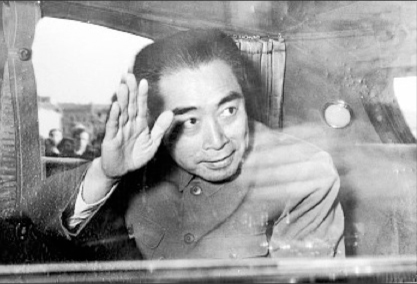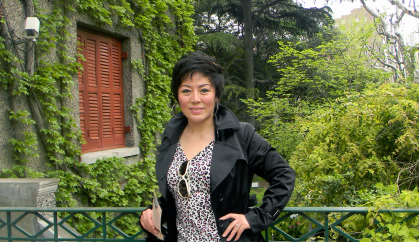
A Story of Zhou Enlai
by Yujie Gao, Shanghai
Recently, I was re-introduced to Chinese traditional culture, and started to learn about the traditional sages.
Confucius always advocated two fundamentals of humanity: forbearance and etiquette. China has tried to apply these principles throughout its history, and this philosophy is best understood today through its prime example, Zhou Enlai, the former premier of China.
Zhou Enlai is recognized today as a Hero of Forgiveness; he is deeply loved and respected by all the people of China.
One story will help to understand why.
This memoir was written by a staff member who worked at the Great Hall of the People in central Beijing in the Gang of Four* period, during the Cultural Revolution.
One day, leaders of the Gang of Four were in a meeting room at the Great Hall of the People with Premier Zhou Enlai.
The staff member brought bottled water to the Premier, and was shocked to see them pointing their fingers at him, yelling at him, nearly poking the Premier in the face.
Zhou Enlai was sitting on a sofa. He looked down, listening calmly, and showed no resistance to their disrespect.
The staff member was angry at how the Gang of Four treated the Premier, a respected man who was ill at the time, and more than 70 years old. She dropped her plate in shock, and in fear of the violence in the air. The plate fell to the ground, breaking the water glasses.
The Premier remained still. And the shouting stopped.
.
Because of the Premier’s great forbearance, demonstrated in this instance and many others throughout his life, people understand and respect him deeply today. His strength, in meeting violence with the most powerful weapons — peace and silence — protected a generation of leaders in China.
That is why people still love him so much; the Long March of his life provides the best example of forbearance in China’s modern history. At his death in 1976, there was a last salute to the Premier, although people were officially forbidden to gather in Zhou Enlai’s name that day. Millions stood silently on Changan Avenue, row upon row with black armbands, the crowd stretching for miles — a symbol of his continued legacy.
For a time, China has seemed to forget the traditions of its sages. But there is good news today: respect is returning, and the traditional wisdom is returning, to lift people up once again, to return to the centre, to the truth. People are ready to begin living in consciousness, integrity and kindness once again.
We must continue extending our rich culture, and building bridges between East and West. Reducing complication to simplicity, acting with awareness, bringing love through the silence…
- (Note: The Gang of Four were Chinese political leaders who advocated extreme ideologies that were part of to the Cultural Revolution (1966-1976). The Gang of Four were later discredited and charged with serious crimes.)
 By: Yujie Gao; Zhou Enlai Peace Institute, Peace Angel
By: Yujie Gao; Zhou Enlai Peace Institute, Peace Angel
Shanghai, China
Yujie Gao is an educator, a teacher, a trainer, a pioneer of business entrepreneur, and a peace maker. She works for one of the leading training company in China, she lives in Shanghai. Photo at the former residence of Zhou Enlai in Shanghai, April 2012.